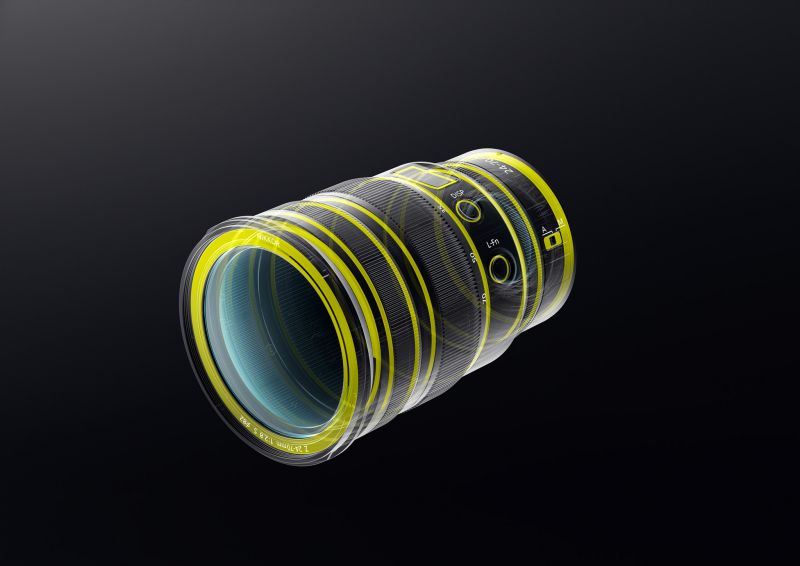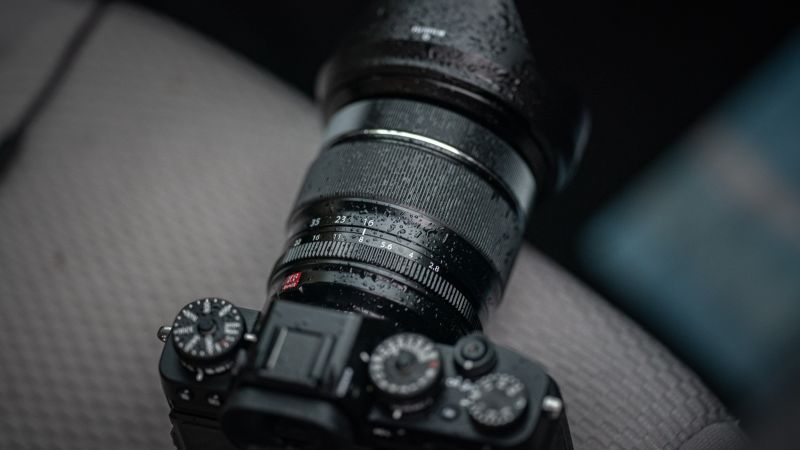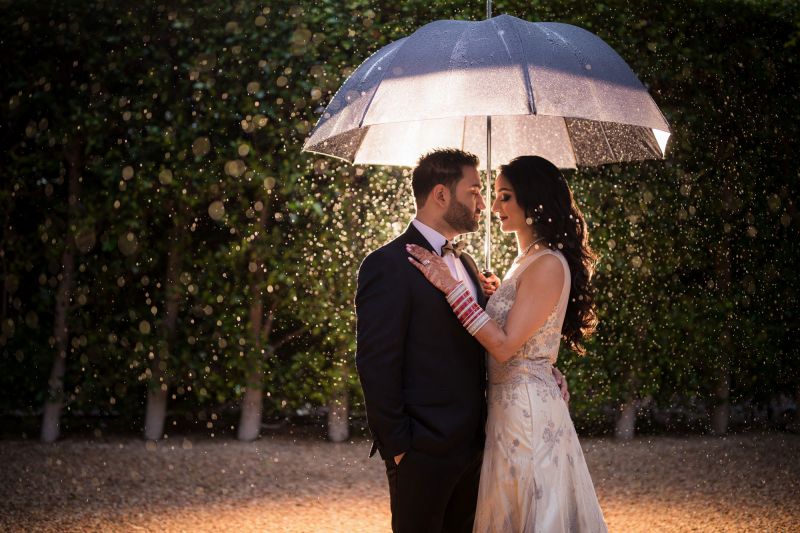
Buying expensive new equipment is an exciting climax to a long process. You’ve saved up, researched the best options, and found somewhere to make your big purchase. As soon as you’ve spent your hard-earned money, however, the excitement can turn to fear of potential risks. Unless, of course, you practice good camera care!
Now that you are the owner of this new (or used) equipment, you are responsible for its care. If anything happens to it, you’re down hundreds or thousands of dollars! As such, you need to prepare to protect your gear. Consider both our purchase, and its care, to be an investment in your creative passion.
Top 5 Camera Care Tips
The good news is that there are plenty of simple things you can do to protect your equipment. Do the following 5 things immediately after making your purchase…
1. Inspect Damage and Know Your Return Policy & Window

The first thing to do after buying expensive camera gear is to check the box and the items for damage. If there’s noticeable damage to the camera equipment itself, this is not the time to try and practice good camera care or fix something yourself. The retailer may have tried to sell you a refurbished or returned item, or it may have been severely mishandled during shipping! Don’t be afraid to send it back.
PRO TIP: Before you even open a package, if there is obvious damage at the time of delivery, capture a video of yourself opening everything so you have evidence that the damage occurred during shipping!
After you’ve properly inspected the gear, take a second to mark your calendar for the last day to return the item. This ensures that you don’t miss the return window if you’re unhappy with the purchase.
Also, take another moment to read the warranty card. Depending on where you live, you may be required to activate a warranty, or you may automatically be eligible for warranty repair simply by making the purchase.
2. Insure Your Camera Equipment

No matter how well you follow the best camera care practices, there is a risk that your gear could be stolen or destroyed in an accident. Then again, it could be as simple as your kid knocking over your tripod!
Therefore, you should get insurance for camera equipment as soon as possible. If you already have renters insurance, your equipment may already be covered. However, if it is particularly expensive, and if you want extra coverage for damage, you will need to get scheduled insurance.
This will be added to your regular policy for an extra price. It is well worth it, as leaving expensive equipment uninsured puts you in a very tricky position. You stand to lose a big investment without any recourse.
3. Get A Good Protective Case or Camera Bag

If your new equipment doesn’t come with a protective case or padded bag, then you should invest in a good camera bag or backpack for the purpose. Equipment can get damaged all too easily, especially if you’re carrying it around with you every day, let alone on big trips and adventures.

You need a camera bag that will keep it safe regardless of where you take it. A good camera bag should:
- Be rainproof
- Have a solid, padded base so that you can set it down
- Provide easy access to your camera (and a spare lens)
- Not look like a camera bag, if possible
4. Proper Camera and Lens Care: Understand Vulnerabilities

Some photographers are afraid of letting even a single drop of rain touch their camera. (Maybe they lost a camera or lens to a rogue wave on the beach once.) Other photographers seem to go on all sorts of adventures and their equipment survives the harshest elements, yet they are unlucky enough to have their gear stolen.
What could we learn from this? To put a positive spin on the seeming randomness of life, think of it this way: good camera care involves not just being gentle when holding your camera gear, but simply taking all manner of precautions, whenever possible.
So, what are the actual, common vulnerabilities that threaten your camera and lenses? First and foremost, in our own decades of experience, human error is the biggest culprit. For example, even the slightest bump to your lens dropped from just a few inches onto concrete can cause issues with its sharpness, autofocus, or stabilization. So, whatever you do, just don’t drop anything! (Also, if you do drop a lens, even if it looks relatively undamaged on the outside, we still recommend taking some test photos immediately to make sure it is still sharp and focusing/operating correctly.)

We’ll talk more about bad weather next; here are the major points of all your various camera vulnerabilities:
Camera Equipment Risks
- Hot and cold weather by itself isn’t that big of a risk to your gear, including freezing cold and record-setting heatwaves! However, a a drastic, rapid change in temperature can be serious trouble when it causes condensation in your optics or on any electronics. For example: going from indoors with A/C to outdoors with severe heat and high humidity!
- A little rain usually never hurt, but watch out for waves on the beach! (More on this next…)
- Sand is evil. Regular dust and dirt can be cleaned off your gear with a damp cloth or an air blower, but if a grain of sand gets inside your camera or lens, it could cause real damage.
- Even if your camera bag has padding, unless it is a hard case, we recommend traveling with no lens attached to your camera body, especially if there is any risk that the camera bag will be crushed under other luggage.
- Just because a camera or lens has plastic parts doesn’t mean it can’t survive some abuse. In fact, in our experience, many high-grade plastic lens barrels are more resilient to bumps and knocks than the all-metal designs.

Got any other camera care tips or advice for different challenging conditions in which you find yourself still wanting to take pictures despite the risks? Leave a comment below!
4b. Understand Weatherproof Limitations

Hopefully, you already know that “weatherproof” doesn’t mean “waterproof”. There is a big difference, indeed! The question is, just how much can you get away with if your camera is weather-sealed? How safe is your gear if it doesn’t have any weather sealing? Understanding your bad weather limitations is a key factor in good camera care.

Okay, first, the good news: A little bit of rain never (well, almost) hurt most camera gear! Even if your gear is not weather-sealed, it can survive a light drizzle for a few minutes. Just wipe it down with a dry cloth as soon as you can, and you’ll be fine!

Now, here’s the bad news: while rainwater is rather pure, saltwater is the opposite. In fact, salty water is like cancer to any electronic device or bare metal surface. So, avoid wave splashes, and if even the smallest splash hits your camera, wipe it off immediately. You can take a little more risk if your camera is fully weather-sealed, but we just don’t recommend it.

Last but not least, after your gear has encountered “tough conditions”, you’ll probably be surprised by how durable it is! That is, when you clean your camera gear correctly, as soon as possible after it encounters rough weather. There’s an excellent chance that all weather-sealed camera gear will be perfectly fine! In fact, even your un-sealed camera bodies and lenses will be okay, too! If you want proof, check out this article with the full story behind the above photo.
4c. Get a rain cover

Once in a while, taking pictures in the rain or other bad weather might be simply unavoidable. Now, a rainproof camera bag is great for when you’re carrying it around, but what about when you’re using it? You’ll need a rain cover.
While your camera is probably weather-sealed, your lens may not be, and the lens mount itself is always your weakest link in the system. If that light rain turns into a torrential downpour, you want to be able to cover up your camera and lens immediately and retreat to shelter. The better the protection you provide your gear, the longer your camera will survive.
[Related: 6 Tips For Prolonging Your DSLR’s Lifespan In 2022]
5. Store in a Good Location

You may be eager to take photos wherever you are, even at home. For this reason, you might not have made space to store your equipment. After all, you want it accessible at all times. However, this leaves your equipment in danger for a number of reasons.
First of all, you’re not storing it in a space designed to keep it in the best condition. When you have created a specific storage space, you know that your equipment will not get sun damaged, for example, and won’t be at risk of getting wet.
Have A Good Emergency Plan
Or, if there is an emergency such as a flood or fire, at least you know where all your gear is, so that if you have time you can easily grab just the valuable items during an evacuation. This is true for all your valuables in life!
Then, there’s the fact that all of us are fallible. You may be extremely careful around your equipment, but a simple mistake can cause great damage. This is especially true if you live with other people (or cats or dogs!) who might not be as careful as you are. So, don’t just leave your gear out on a shelf; keep it stored in a padded case.

Finally, you need to keep it in a secure place. Camera equipment is one of the easiest things to steal in your home. Anyone who sees it automatically assumes it is expensive. Furthermore, it is highly portable. A thief might be inclined to grab an expensive camera before trying to unplug your TV from the wall. (Also, used TVs probably depreciate far worse than used camera gear!)
The space in which you store your equipment should be lockable, yet still easy for you to access. At the very least, keep it well out of sight. Depending on the type of home security system you have, it might be enough just to keep your equipment out of sight.
Camera Care | Conclusion


You’ve just invested in an expensive piece of equipment. Don’t take unnecessary chances with it! Get it insured, and do everything you can to keep it in excellent shape. That doesn’t mean you should never go on exciting adventures, or never take pictures in dramatic conditions. Just be careful, take reasonable precautions, and enjoy the craft of photography in the long run.




Get Connected!